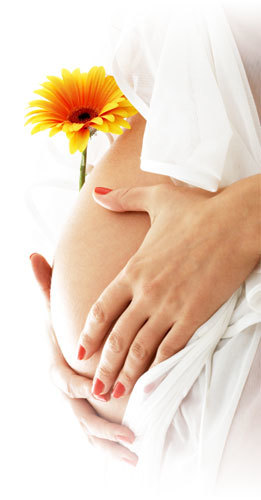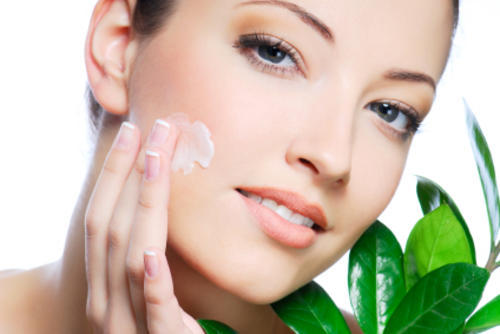Safety considerations: Some skincare ingredients are potentially harmful. Lead in particular, when absorbed through the skin is known to make its way to the placenta and your baby. Avoid skincare products that contain Salicylic Acid, Benzoyl Peroxide, Accutane, Phthalates and Retinol A. Also refrain from using hair removal creams and hair colour products. Dealing with skin changes during pregnancy: Here's a quick look at the most common skin conditions pregnant women develop, and their remedies. |
 | Cholasma: Also known as 'the mask of pregnancy', appears as brownish or yellowish patches around the forehead, cheeks and nose. Avoid exposure to the sun as much as possible and always wear sunscreen.
Acne: See a dermatologist, mention that you're pregnant and follow the advice given. Avoid the usual anti-acne products which typically contain Salicylic Acid and Benzoyl Peroxide.
Increased pigmentation: Highly pigmented parts of your body (nipples, moles etc.) will become darker and stay that way for some time after delivery.
Stretch marks: Almost all women develop stretch marks on their buttocks, abdomen and breasts. Gentle exercise, Vitamin E/AHA/cocoa butter lotions help minimise stretch marks.
Linea Nigra: This is a line that runs from your navel to the pubic bone. You've always had it but around the fifth month of your pregnancy, it becomes darker and eventually fades after delivery. Most of these conditions usually go away post-delivery once your body restores its hormonal balance. Consult your gynaecologist if you develop any of these conditions.
Pregnancy skincare routine: Use a mild cleanser or face wash that retains essential oils. Follow up with a moisturiser with an SPF of at least 20. If you're prone to acne, use anti-acne products containing glycolic acid and AHA. Always use fragrance-free products. Keep makeup minimal, some concealer or water-based foundation, kohl for the eyes, lip-gloss and you're all set.
Eating correctly during pregnancy: You don't need to eat for two, but make sure you consume plenty of whole grain/bread, four servings each of dairy, fruit and veggies, three servings of protein (meat, eggs, fish etc.) and plenty of water. Make a point of eating food rich in calcium (e.g., milk, yoghurt, cheese, salmon, tofu), iron (e.g., egg yolk, spinach, liver, red meat) and folic acid (e.g., dark leafy veggies, black beans). Also ask your doctor about prenatal vitamin supplements. Your skin needs some extra TLC during your pregnancy. A nutritious diet coupled with a regular skincare regimen and plenty of rest will prevent or minimise pregnancy-related skin conditions to keep you looking your best.
|

